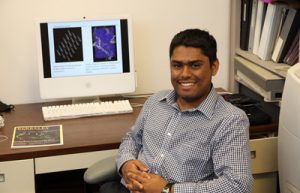Early intervention is critical for treating certain medical conditions, and Dascena is there to speed the process along with its predictive diagnostic algorithms. Designed to detect early warning signs of severe sepsis, acute kidney injuries, and organ failure, the machine learning-powered system saves both lives and money. Its first efforts resulted in an early detection system for sepsis.
According to Dascena's founder and CEO, Ritankar Das, over 250,000 people die from sepsis every year. The firm's flagship product is InSight, its sepsis-detection software, and it has helped decrease the number of deaths by 58 percent and reduced the length of hospital stay by 21 percent. The firm’s academic bona fides are strong: their algorithms have been confirmed in 18 peer-reviewed journals via several studies funded by the National Institute of Health and the National Science Foundation.
Dascena’s choice to create a system to predict sepsis was a strategic one. As the leading cause of in-hospital death in the United States, its software can help cut back on hospital readmissions and pare down the $24 billion in annual sepsis expenses. “Machine learning is transforming how we solve problems across industries, and by applying this technology to healthcare, we will enhance the quality and efficiency of patient care,” Das said.
The COVID-19 pandemic has applied pressure to health systems and spurred further investment in predictive analytics that can inform strategic decisions. According to a Society of Actuaries survey, a majority of healthcare executives have stated they are either planning or are in the process of putting predictive analytics into play within their organizations. Such algorithms can solve many problems, including predicting bed shortages, anticipating the course of illness in a coronavirus patient, and foretelling where COVID-19 will next crop up. As healthcare providers become more accustomed to incorporating predictive systems into their practice, it's thought they will quickly realize the potential for diagnosing and treating patients.
When Ritankar Das was a Ph.D. student at the University of Cambridge, he started creating algorithms to support efforts to diagnose complex medical conditions. Dr. Roy Vagelos, his mentor, suggested that Das launch his start-up and bring his software to those patients who need it most. Vagelos ended up being Das's first investor, but the company subsequently received four grants from the National Institutes of Health (NIH). Dascena successfully raised $50 million in funding led by Frazier Healthcare Partners. Other investors included Euclidean Capital and Longitude Capital.
In October, Beckman Coulter and Dascena collaborated and won a $1.3 million contract with DRIVe (Division of Research, Innovation, and Ventures) – an initiative founded by the Biomedical Advanced Research and Development Authority (BARDA). The joint venture is expected to yield a commercial version of Dascena’s machine learning-based sepsis detection system.























